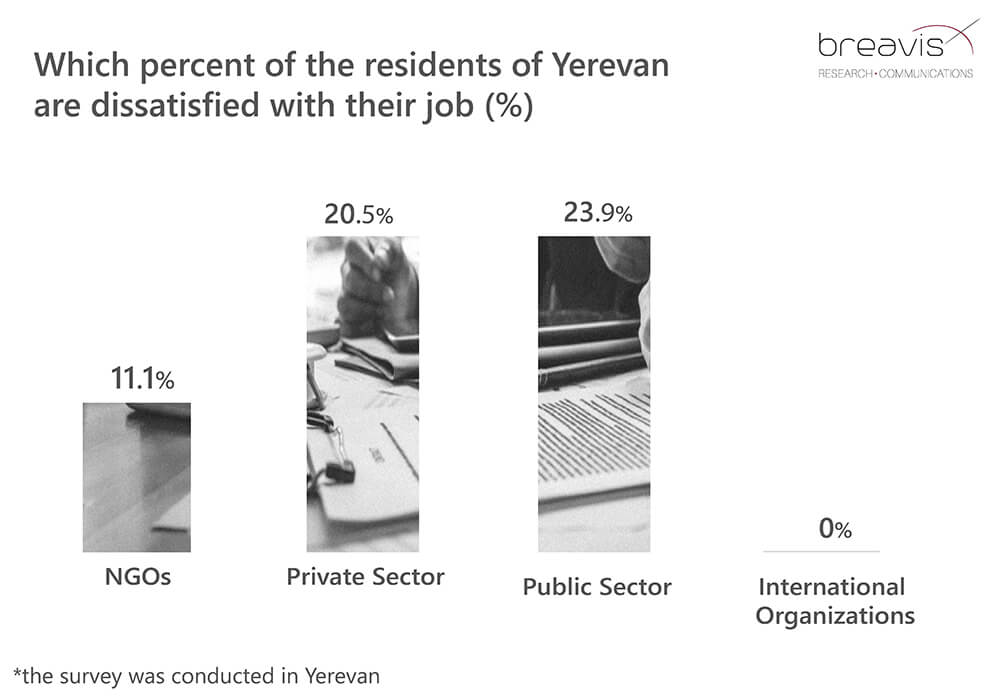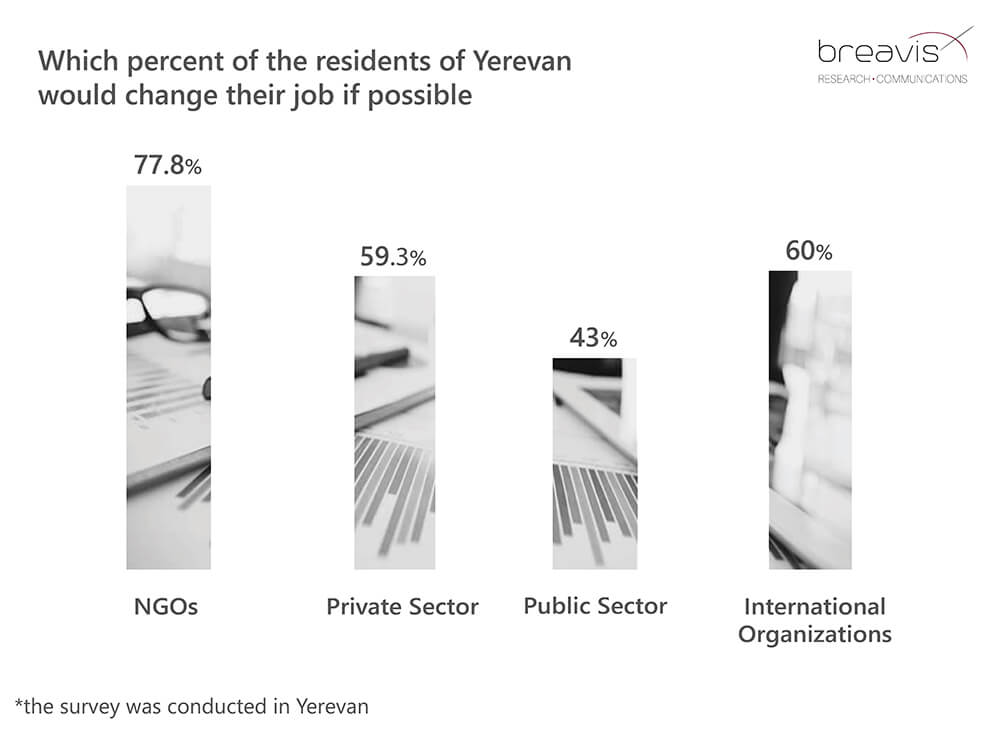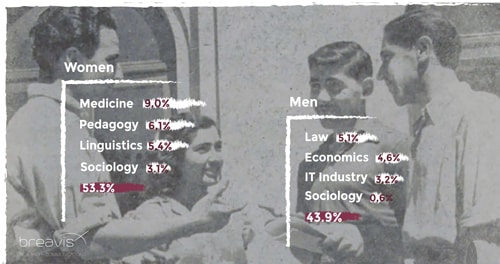
In the scope of the Career Development by Breavis a survey regarding career preferences has been carried out which revealed what percentage of Yerevan residents are satisfied with their jobs, and what percentage would like to change their job if given the chance.
Interestingly, 21,3% of Yerevan residents are not satisfied with their jobs, however, 46.1% of the respondents would not like to change their job, if given the opportunity. On the contrary, almost half of the people who are content with their job (46%) are ready to take a new job.
Based on the field of work, Yerevan residents working in international organizations are the most content with their job (exclusively all respondents in this sector indicated that they are satisfied with their job), but even in this case more than half of them are ready to change their job at any opportunity. Paradoxically, the opposite picture is observed in the state system, where people dissatisfied with their current job comprise the largest group among the respondents: 23.9%, at the same time, about 57% of state employees would not change their current job even if they have the opportunity. The same controversial picture is observed among private and non-governmental organizations: where the majority of employees working at NGOs are more satisfied with their current job (88.8%) than those at private sector (79.4%), nevertheless, employees at NGOs are more likely to change their jobs (77.8% vs. 22.2%).

In this content, it is worth referring to the analysis of the responses of the people working by profession. Particularly, almost every 5th of those people working by their profession (18.3%) is not pleased with his/her job. Complaints from the work conditions as well as wrong professional orientation and changes in the preferences are among the reasons.
From this point of view, the last interesting regularity observed during the survey is related to the educational level. In particular, among respondents with a secondary or lower education and higher education the percentage of those who want to change their jobs is almost the same (51.3% and 51% respectively), and the results are almost identical for those with vocational education or incomplete university education (62.1% and 62.5% respectively). At the same time, the most dissatisfied with their jobs are those with secondary or lower and vocational education (24.6% and 24.5%), followed by those with higher education (19.2%) and those who did not finish their university degree (12%).



